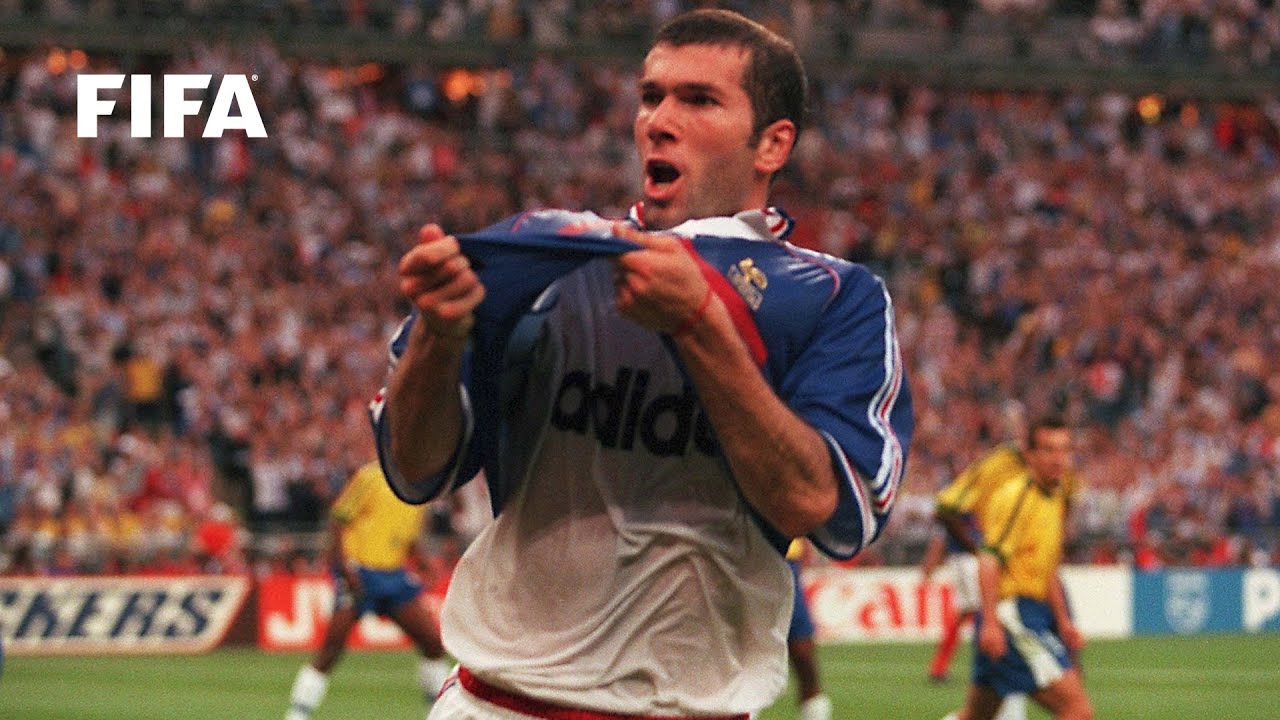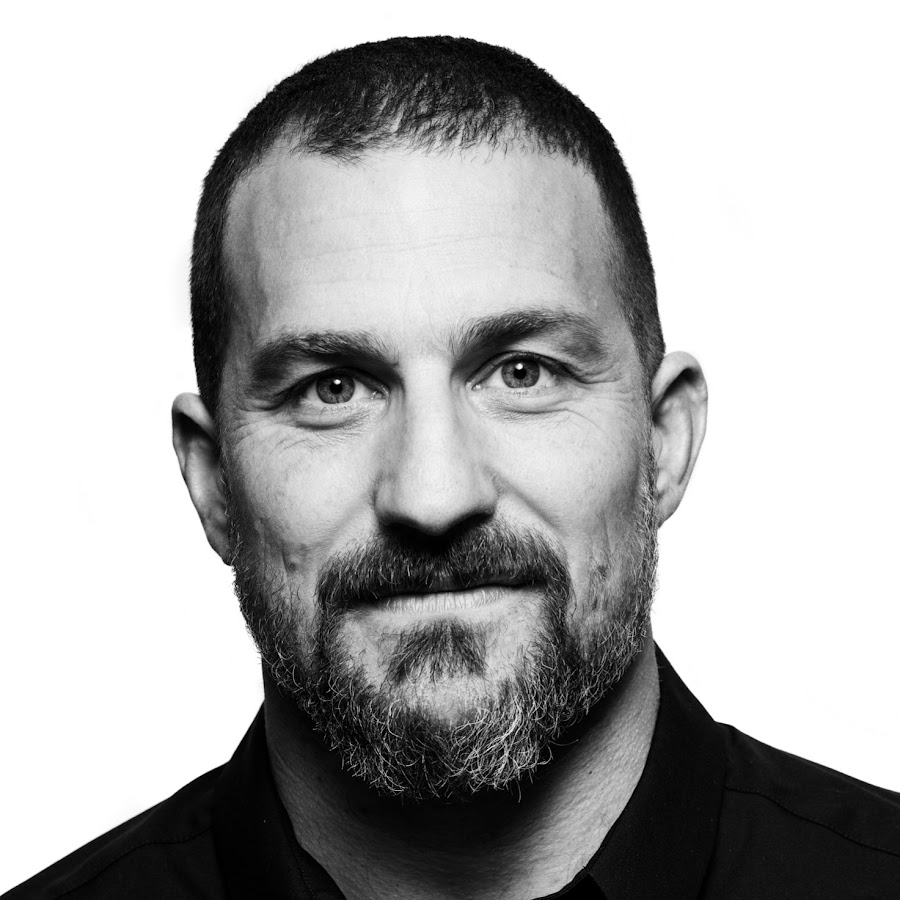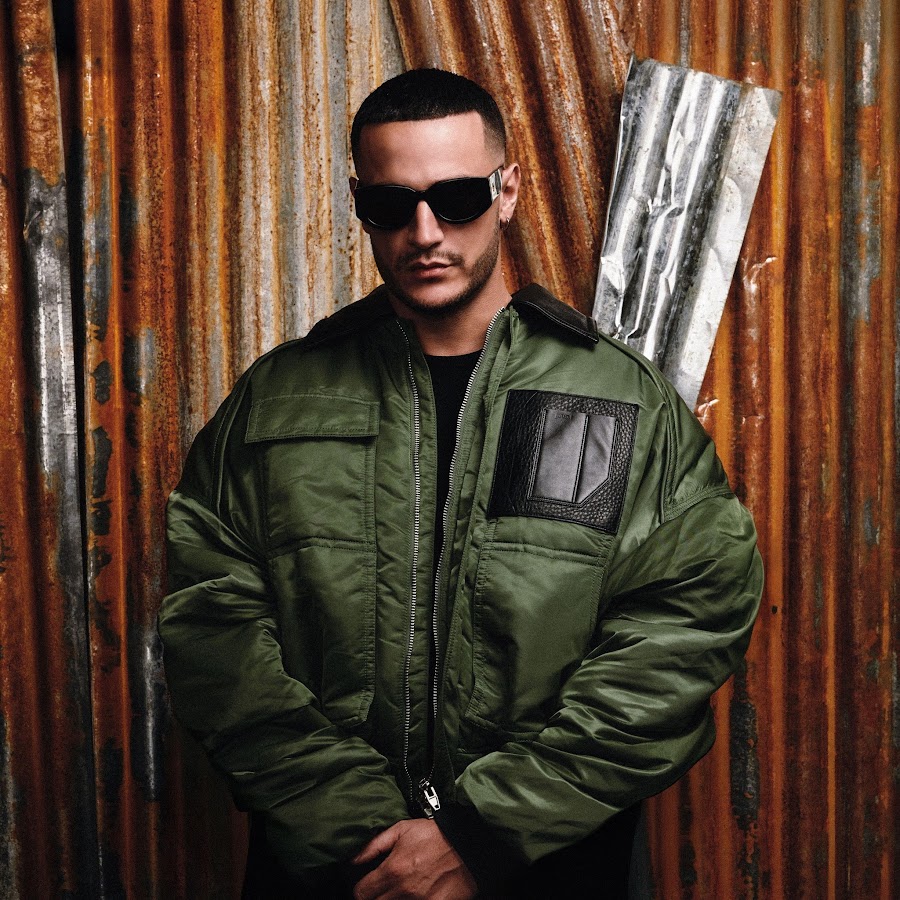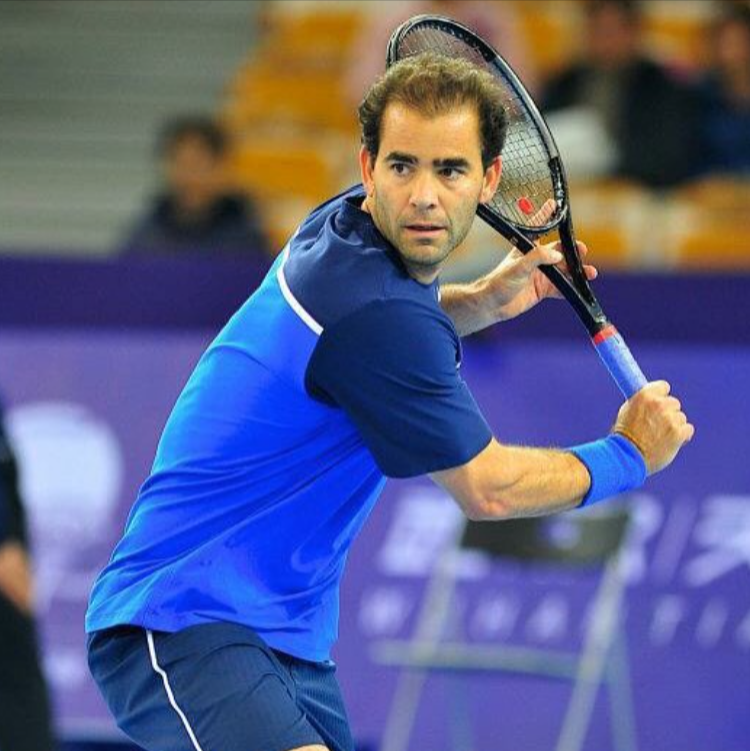The matter of the Zidane religion is a topic of great interest. Zinedine Zidane is a Muslim, having been raised in a Muslim household by his Algerian parents. While he maintains a very private stance on his faith, he has acknowledged his background and the cultural values it instilled in him.
| Religion: | Islam |
| Profession: | Professional Football Manager and Former Player |
| Date of birth: | 23 June 1972 |
| Zodiac sign: | Cancer |
| Nationality: | French, Algerian |
As Frenklen, a writer who has spent the last 15 years dissecting the narratives of sporting icons, the story of Zinedine Zidane has always been uniquely compelling. It’s not just about the balletic grace on the pitch or the stunning collection of trophies. It’s about the man himself—an enigma wrapped in quiet confidence. For years, fans and media have asked the same questions, trying to understand the bedrock of his character. The most persistent of these revolves around the Zidane religion. In my experience, understanding an athlete’s core values is key to understanding their greatness. With Zidane, his faith, heritage, and upbringing are inextricably linked to the calm, focused, and fiercely proud individual the world has come to admire. This article isn’t just about answering a simple question; it’s about exploring the deep cultural and spiritual currents that shaped one of football’s greatest legends.
Zinedine Zidane and Early life and religion
Zinedine Yazid Zidane was born on June 23, 1972, in La Castellane, a tough, working-class suburb in Marseille, France. To understand the man, one must first understand his origins. His story is a testament to the power of heritage, hard work, and the quiet strength of faith.
Zidane’s parents, Smaïl and Malika, are central to his narrative. They emigrated from the village of Aguemoune in the Kabylie region of northern Algeria in 1953, well before the start of the Algerian War. This region is known for its mountainous terrain and its proud Berber population, which is predominantly Muslim. Like many North African families moving to France for better opportunities, they brought their culture, traditions, and their Islamic faith with them. They settled in Marseille, a city that became a melting pot of cultures, but also a place of significant social challenges.
The Zidane family’s life in La Castellane was modest. Zinedine was the youngest of five siblings. His father, Smaïl, worked as a warehouseman and night watchman, instilling a powerful work ethic in his children. His mother, Malika, was a homemaker who maintained the family’s cultural and religious foundations. Zidane has often credited his strict but loving upbringing and his father’s guidance as the “guiding light” of his career. The values taught in his home were clear:
- Humility
- Hard work
- Respect for elders
- Pride in one’s roots
Religion was not a loud, public declaration in the Zidane household; it was a lived reality. It was woven into the fabric of their daily existence, a source of moral guidance and inner strength. The family lived as practicing Muslims, and this environment shaped Zidane’s character from a very young age. He grew up balancing two worlds: the French culture of the streets and schools of Marseille, and the Algerian, Berber, and Muslim heritage of his home. This dual identity would become a defining feature of his life and career, making him a symbol of pride for millions of French-Algerians.
It was on the concrete plazas of La Castellane that Zidane first discovered football. The game was an escape and an opportunity, a space where his innate talent could flourish. His early coaches noted his incredible skill but also his sensitivity and a fiery temper, often provoked by insults about his background or family. This internal conflict, of being an Algerian-Frenchman in a tough environment, was a crucible that forged his famous on-field composure and, on rare occasions, his explosive anger.
Zinedine Zidane views on faith and spirituality
Throughout his illustrious career and subsequent success as a manager, Zinedine Zidane has remained remarkably private about his personal life, especially his religious beliefs. He has never been one to make grand public statements about his faith. Instead, his spirituality is reflected in his actions, his values, and the quiet dignity with which he carries himself. When asked directly, he has described himself as a non-practising Muslim. This term, however, requires some nuance to be fully understood in his context.
For Zidane, being a Muslim appears to be more about identity, culture, and personal values than about strict, daily religious observance in the public eye. His connection to Islam is deeply rooted in his upbringing and his respect for his parents, Smaïl and Malika, and the heritage they passed down. He doesn’t speak about prayer or mosque attendance, but the principles of his faith—humility, discipline, family—are evident in everything he does.
A significant indicator of his personal commitment is the long-standing report that he would fast during Ramadan, even while playing at the highest level of professional football. Though never officially confirmed by Zidane himself in a detailed statement, this practice is common among many devout Muslim footballers. It speaks to a deep, personal discipline and a commitment to his spiritual duties that transcends the immense physical demands of his profession. Players like N’Golo Kanté and Karim Benzema have also been known to observe the fast, highlighting a shared dedication among elite athletes of the Islamic faith.
Zidane’s spirituality seems to be a personal, internal compass rather than an external display. His name itself, Zinedine, is of Arabic origin (Zine al-Din) and means Beauty of the Faith. His middle name, Yazid, is also Arabic. He carries these names with a quiet pride that reflects his overall approach to his heritage. He has an affinity with the Arabic world, as he once stated, acknowledging that it is in his blood through his parents. This connection is a core part of his identity, a source of strength he has drawn upon throughout his life.
This private approach to a public identity is a balancing act. In France, where secularism (laïcité) is a strong national principle, public figures often keep their religious beliefs to themselves. Zidane navigates this perfectly, embodying a modern, European Muslim identity that is both integrated and proud of its distinct roots. He is a French national hero, but also a symbol for the North African diaspora, proving that one can achieve the pinnacle of success without abandoning their heritage.
Zinedine Zidane Life Partner Religion
Zinedine Zidane’s family life offers another interesting dimension to his personal story, reflecting a blend of cultures that mirrors his own background. He has been married to Véronique Zidane (née Lentisco) since 1994. Their enduring partnership has been a cornerstone of his life, providing stability away from the intense pressures of the football world.
Véronique is of Spanish descent and was born in Aveyron, France. Importantly, she is not from a Muslim background. Their relationship is a union of different European and North African heritages, creating a multicultural family environment. They met when Zidane was just 17 years old, during his early days playing for AS Cannes. He was a young, raw talent finding his way, and she was a dancer and model. Their connection was immediate, and they have been together ever since, building a life and family far from the media spotlight.
The couple has four sons, all of whom have pursued careers in football:
- Enzo Zidane (born 1995)
- Luca Zidane (born 1998)
- Theo Zidane (born 2002)
- Elyaz Zidane (born 2005)
All four sons have trained at the prestigious Real Madrid academy, following in their father’s footsteps. The family is known for being extremely private. Véronique has rarely given interviews, and Zidane himself seldom speaks about his wife and children in public. This protective stance has allowed them to maintain a sense of normalcy despite Zidane’s global fame.
In the context of the Zidane religion, his marriage to a non-Muslim woman is significant. It demonstrates a modern and personal approach to faith, where love and partnership transcend religious or cultural boundaries. The family they have raised is a product of this blend—French, Spanish, and Algerian heritages coexisting. While Zidane was raised in a Muslim household and continues to identify with his faith, their family life does not appear to be governed by strict religious dogma. Instead, it seems to be guided by the shared values of love, respect, and privacy that both he and Véronique cherish.
Religion does not appear to be a public topic of discussion within the family. It is understood that Zidane lives by the quiet, humble values he inherited from his parents, Smaïl and Malika, and has built a family life based on mutual respect for each other’s backgrounds. This approach further solidifies his image as a man who is comfortable in his own skin, seamlessly blending his diverse cultural and spiritual influences.
Zinedine Zidane Comments in interviews about spirituality and Religion
Zinedine Zidane is a man of few words, especially when it comes to his private life. He prefers his actions on and off the pitch to do the talking. However, in rare, candid moments during interviews, he has offered glimpses into his perspective on his heritage, faith, and identity. These comments, though scarce, are powerful in their sincerity and provide a clear window into his soul.
One of his most cited and insightful comments came from a 2018 interview with Esquire magazine. When discussing his background, he articulated his position with clarity and pride. He stated: I have an affinity with the Arabic world. I have it in my blood, via my parents. I’m very proud of being French, but also very proud of having these roots and this diversity. This single quote encapsulates the core of his identity. It is not a statement of conflict, but one of harmony. He does not see his French nationality and his Algerian heritage as mutually exclusive. Instead, he views them as complementary forces that have made him who he is.
This pride in his roots is a recurring theme. He has never shied away from his connection to Algeria or the Kabylie region his parents came from. He has visited his family’s village of Aguemoune and has always spoken with great respect about his North African identity. This acknowledgment is hugely significant in France, where he is a national hero and a role model for millions of children of immigrants.
Regarding his religion specifically, he has been even more reserved. He has confirmed his Muslim background when asked but does not elaborate on his personal practice. In a 2005 interview with Le Buteur magazine, he addressed a rumour that he was once denied a spot on the Algerian national team. He dismissed it, clarifying that he was already committed to the French national setup and thus ineligible. In the same breath, he has consistently maintained his identity as a Muslim, even if he describes himself as non-practicing. This suggests that for him, the cultural and ethical framework of Islam is a fundamental part of his identity, passed down from his parents, Smaïl and Malika.
His infamous headbutt in the 2006 World Cup final, while a moment of lost control, also revealed something about his deep-seated values. It was later revealed that Marco Materazzi had insulted his sister. In a later interview, Zidane spoke about the provocation, saying: If you look at the fourteen red cards I had in my career, twelve of them were a result of provocation. This isn’t justification, this isn’t an excuse, but my passion, temper and blood made me react. This fierce protection of family honor is a value deeply ingrained in many traditional cultures, including that of his Algerian heritage. While he regretted the action’s consequence for his team, he famously said he would rather die than apologize to Materazzi, underscoring the depth of the insult he felt.
Zinedine Zidane Comparisons with other celebrities on Religion
In the world of elite football, the expression of religious faith varies greatly from one superstar to another. Comparing Zinedine Zidane’s private approach to that of other prominent Muslim footballers highlights the diverse ways in which athletes navigate their spirituality in the public eye. Zidane’s quiet, internalised faith stands in contrast to the more open displays of other players, yet they all draw strength from the same spiritual foundation.
A prominent comparison is with Liverpool’s star forward, Mohamed Salah. Salah is arguably one of the most visibly Muslim athletes in the world. His faith is an integral part of his public persona. He frequently performs the sujud (prostration) after scoring a goal, a clear and powerful display of his devotion to Islam. He speaks openly about his faith and has been credited with helping to reduce Islamophobia in the UK. His public expression is celebrated and serves as an inspiration for millions.
Other notable Muslim players who are open about their faith include:
- Sadio Mané: Like Salah, Mané is a devout Muslim. He has been filmed cleaning the toilets at his local mosque and has spoken about how his faith guides his life, emphasizing humility and charity.
- Mesut Özil: The former Arsenal and Real Madrid playmaker has been vocal about his Muslim faith, often posting about Ramadan and other religious observances. He was famously pictured performing Umrah, the minor pilgrimage to Mecca.
- Karim Benzema: Zidane’s former player at Real Madrid and fellow Frenchman of Algerian descent, Benzema is also a practicing Muslim. While perhaps not as publicly demonstrative as Salah, he has spoken about the importance of Ramadan and his faith.
- Paul Pogba: Another French World Cup winner, Pogba converted to Islam and has spoken about how the faith brought him peace and made him a better person. He has also made the pilgrimage to Mecca.
Zidane’s approach is different. He belongs to an older generation of players and comes from a French cultural context where public displays of religion are less common. His style is one of quiet integrity. He does not need to perform the sujud to affirm his identity; his identity is affirmed in his character, his respect for his roots, and his unwavering pride in his family’s Algerian and Muslim heritage. He represents a form of faith that is deeply personal and private, a source of inner strength rather than a public spectacle.
This does not make his faith any less significant. In fact, for many, his approach is just as powerful. He shows that one can be a devout person without needing to shout it from the rooftops. He embodies a form of spirituality that is integrated seamlessly into a secular, modern life. In this way, Zidane, Salah, Mané, and others all contribute to a richer, more nuanced understanding of what it means to be a Muslim in the 21st century, each in their own authentic way.
Religion Influence on Zinedine Zidane Life
The influence of religion and the cultural values associated with his Muslim upbringing are profoundly evident in Zinedine Zidane’s personal and professional life. While he may be a man of few words on the subject, the principles of his heritage have shaped his character, his career, and his legacy. This influence is not about overt religious displays but about the fundamental ethics that have guided him from the streets of La Castellane to the pinnacle of world football.
One of the most defining traits of Zidane is his humility. Despite being one of the most decorated and celebrated figures in the sport’s history, he has always maintained a grounded and reserved demeanor. This humility can be traced directly back to his upbringing. His parents, Smaïl and Malika, instilled in him the importance of modesty and respect, core tenets in many Islamic cultures. He was taught to value hard work over flashy displays of wealth or ego. This is reflected in his playing style—elegant and effective, but rarely selfish—and in his coaching philosophy, which prioritizes the collective over the individual.
The influence of his background is also seen in his legendary composure. For the vast majority of his career, Zidane was the epitome of calm under pressure. That smooth first touch, the laser-focused stare, the ability to slow the game down amidst chaos—all these pointed to a man with immense inner strength and discipline. This mental fortitude is often cultivated through spiritual practice and a strong moral compass. The discipline required to reportedly fast during Ramadan while competing at an elite level is a testament to this inner resolve.
His strong sense of family and loyalty is another cornerstone of his character, deeply rooted in his Algerian and Muslim heritage. His fierce reaction in the 2006 World Cup final, while controversial, was born from a deep-seated need to protect his family’s honor. His lifelong partnership with his wife, Véronique, and his dedication to his four sons further highlight the importance he places on family. He has shielded them from the media, creating a stable and private life, a value he learned from his own parents.
Finally, his pride in his identity has made him a powerful symbol. In a career that made him a French national hero, he never forgot where he came from. He embraced his dual identity as a French-Algerian and a Muslim, providing a positive role model for millions. He showed that it was possible to be fully French and fully proud of one’s immigrant roots. As he stated, he is proud of his roots and this diversity. This quiet pride, a hallmark of his personality, is perhaps the most significant influence of his cultural and religious background. It is the foundation upon which the legend of Zinedine Zidane was built.
Conclusion
The question of the Zidane religion opens a door to understanding the man behind the legend. Zinedine Zidane is, by his own account, a Muslim. However, this simple answer barely scratches the surface of a complex and deeply personal identity. His faith is not one of public proclamations but of quiet, lived values instilled in him from his earliest days in Marseille by his Algerian parents, Smaïl and Malika.
His connection to Islam is intertwined with his Berber heritage and his upbringing in a tough immigrant neighborhood. It is the source of his famous humility, his steely discipline, and his unwavering loyalty to his family. While he describes himself as a non-practicing Muslim, his life’s work is a testament to the core principles of his background: hard work, respect, and a quiet pride in one’s roots.
In a world where celebrity often demands full disclosure, Zidane has maintained a dignified privacy around his spiritual life. He has built a multicultural family with his wife Véronique and has become a symbol of successful integration in France without ever abandoning his North African identity. He stands as a powerful example of a modern European Muslim, comfortable in his own skin and defined not by loud declarations, but by the quiet strength of his character. Ultimately, the influence of his faith and heritage is not found in what he says, but in who he is.
Related Queries
Who are Zinedine Zidane’s parents?
Zinedine Zidane’s parents are Smaïl and Malika Zidane. They are of Algerian descent and emigrated from the Kabylie region of Algeria to France in the 1950s. They raised Zidane and his four siblings in a Muslim household in Marseille.
What is the meaning of the name Zinedine?
The name Zinedine is of Arabic origin, derived from Zine al-Din. It translates to Beauty of the Faith, a name that reflects the family’s Muslim heritage. It is a common name in North Africa and the Middle East.
Is Zidane’s wife Muslim?
No, Zinedine Zidane’s wife, Véronique Zidane (née Lentisco), is not Muslim. She is of Spanish descent and was born in France. They have been married since 1994 and have raised a multicultural family together.
Did Zidane play for Algeria?
No, Zinedine Zidane played his entire international career for France. While he is immensely proud of his Algerian heritage, he was already part of the French youth system when his talent became globally recognized, making him eligible only for the French national team.
How does Zidane’s faith compare to other Muslim footballers?
Zidane’s expression of his Muslim faith is very private, contrasting with players like Mohamed Salah or Sadio Mané who are more public with their religious practices, such as celebrating goals with a prostration. Zidane’s approach reflects a more personal, internalised spirituality.
FAQs
Is Zinedine Zidane Muslim?
Yes, Zinedine Zidane is a Muslim. He was raised in a Muslim family by his Algerian parents and has acknowledged his faith, although he keeps his spiritual life very private and has described himself as a non-practicing Muslim.
What is Zinedine Zidane’s nationality and ethnic background?
Zinedine Zidane is a French national. He was born in Marseille, France. His ethnic background is Algerian-Kabyle, as both of his parents, Smaïl and Malika, are Berber people from the Kabylie region of Algeria who immigrated to France.
What are the religious beliefs of Zidane’s family?
Zidane’s parents are both Muslims and they raised their children with the values and traditions of their faith. His wife, Véronique, is not Muslim. Their family represents a blend of different cultural and religious backgrounds.
Has Zidane ever spoken publicly about his religion?
Zidane rarely speaks about his religion. In occasional interviews, he has confirmed his Muslim background and expressed immense pride in his Algerian roots and his affinity for the Arab world, which he says is in his blood via my parents.
What role did Zidane’s upbringing play in his life?
Zidane’s strict but loving upbringing in the tough Marseille suburb of La Castellane was fundamental in shaping his character. The values of hard work, humility, and respect, taught by his parents within a Muslim cultural framework, are widely seen as the foundation of his success and his famously calm demeanor.
If you’re interested in learning more about religion, feel free to visit my website: whatreligionisinfo.com.



